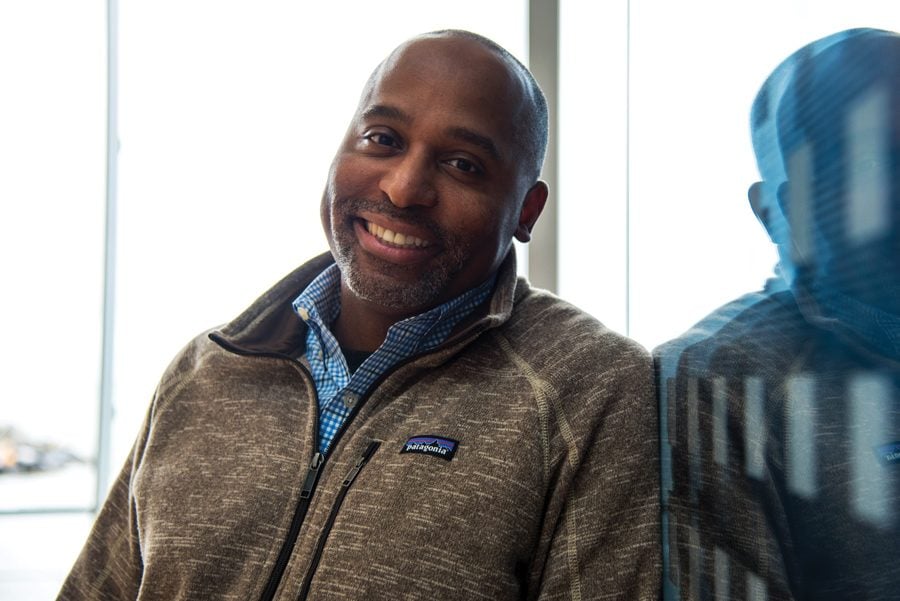Theater chair Harvey Young prepares to leave NU for Boston
Allie Goulding/Daily Senior Staffer
Harvey Young, chair of Northwestern’s Department of Theatre. Young will leave for Boston University after spending 15 years at NU.
November 21, 2017
In high school, Communication Prof. Harvey Young said he became “enamored” with theater, but never saw himself as an actor, instead preferring to stick to backstage work like lighting design and stage crew.
“I always knew that my talent was more behind the scenes than actually onstage,” said Young, who is now a theater historian and critic. “My contribution to that field is to help share that sense of wonder when I write about artists who perform, but also who write, who direct, who produce.”
He currently serves as the chair of NU’s theater department, but said he will soon leave the University. Young will assume the role of Dean of the College of Fine Arts at Boston University, BU’s provost announced in a July news release.
Young said he has been at NU ever since he was hired as a lecturer and dissertation fellow in 2002, and has been chair of the theater department for more than three years. Before coming to NU, he received degrees from Yale University, the University at Buffalo and Cornell University, he said.
Though he began his college career focusing on film, he said he became interested in theater while studying stage-to-screen adaptations and eventually pursued his doctorate in theater at Cornell. Currently, Young said his focus is in contemporary American theater, adding he has long been fascinated by how the arts can serve as a “mirror to society.”
Though he used to teach introductory lecture classes, Young said he is at his best in smaller seminars. He especially enjoys teaching contemporary works, he said, because students have to develop their own critical voices without the “crutch” of prior criticism.
Communication junior Ziare Paul-Emile said she took an American theater course with Young last year and thought it was one of the best classes she’d taken at NU. She found Young to be “brilliant” and passionate about his work, she said.
“I’m heartbroken. I’m really so sad he’s going,” Paul-Emile said. “He just made such a good impression on me, and he’s done a great job here. … He’s a wonderful professor and ally.”
After spending 15 years at NU cultivating relationships, Young said it will be difficult to leave. Many of Young’s closest friends are fellow faculty members, he said, and the collegiality among faculty is “essentially unmatched.”
Theater Prof. Cindy Gold said Young is a “wonderful” colleague who will be greatly missed. As chair of the department, Gold said Young excels at being aware of the strengths of faculty members and also engaging with students in his classes.
“Students adore him,” Gold said. “There are very few faculty members who I think are as well loved.”
During his time as chair, Young said he has dedicated much of his time to improving facilities for the theater department — including recent renovations to the Virginia Wadsworth Wirtz Center for the Performing Arts — and also working on a redesign for the theater curriculum, which will be implemented later this academic year.
The main focus of his work, though, has been a commitment to his “core passion” of diversity and inclusion, he said. Part of it was through the Ghostlight Project — a commitment implemented by the theater department last year — which involves bringing diverse artists to campus and partnering with communities in Evanston and Chicago.
By incorporating works from more diverse authors into courses and engaging students in conversations about race, gender and equity, Young said he has tried to create a more inclusive culture in the theater community at NU, which would then “ripple out” into the professional world.
“My hope is that current students and recent alumni are able to understand and appreciate life from another person’s perspective,” Young said. “If our students think differently about casting to the point at which they want to make the theater and the art they create to look more like the society we live in, then that’s a win as far as I’m concerned.”
Email: [email protected]
Twitter: @madsburk


